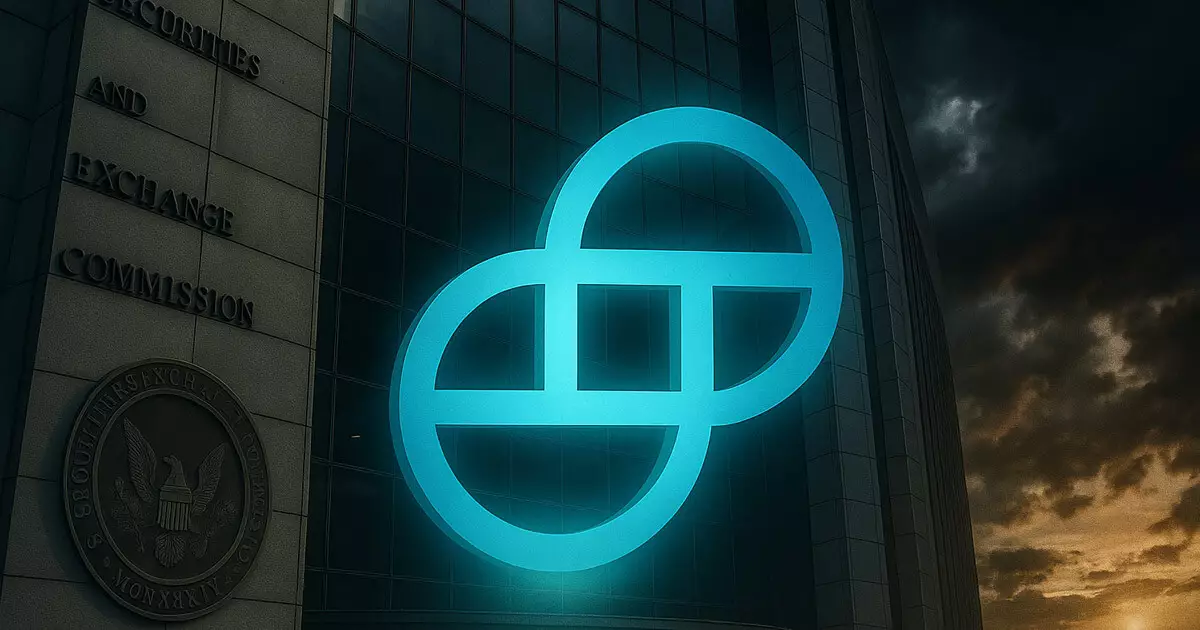In an unsettling twist in the world of cryptocurrency, Gemini, a prominent crypto exchange co-founded by Tyler Winklevoss, has filed a scathing complaint against the Commodity Futures Trading Commission’s (CFTC) Division of Enforcement. This formal renunciation, submitted to the CFTC’s Office of the Inspector General, describes what Winklevoss highlights as an egregiously misguided legal pursuit over the past seven years. Rather than a purely regulatory affair, Gemini’s dispute unveils a landscape where governmental authority can be weaponized for personal ambition rather than public interest.
The complaint raises serious questions about the integrity and motives of regulatory agencies. It accuses the CFTC lawyers of indulging in what Winklevoss terms “trophy-hunting lawfare,” using taxpayer money to chase personal accolades while ignoring the facts. The revelations illuminate a disheartening narrative: regulators potentially prioritizing their careers over the fair treatment of an innocent entity that has been wronged by external fraud.
Regulation or Repression?
In its allegations, Gemini argues that the CFTC has misused its power by persistently pursuing a case devoid of substantial evidence. What’s even more alarming is the claim that the CFTC has relied on dubious testimony from a former employee—an assertion that undermines the credibility of the entire investigation. It’s hard to overlook the irony in a system designed to protect market participants instead turning into a mechanism that crushes them under the weight of baseless accusations.
This cycle of regulatory overreach exposes deeper issues with the CFTC’s internal culture. Instead of focusing on fairness and transparency, enforcement teams seem more interested in earning “victories” that enhance their professional prestige. Such actions not only taint the agency’s reputation but also erode public trust. Regulatory bodies, which should ideally serve as guardians of fair markets, can swiftly devolve into instruments of repression.
The Cost of Compliance
Gemini’s prior $5 million settlement with the CFTC, characterized as a strategic decision to avoid the adversity of prolonged litigation, raises another crucial point: the financial and psychological toll of dealing with a regulator more interested in headlines than justice. This kind of coercive settlement is a bill paid by innocent parties who wish to avoid the gnawing uncertainty of drawn-out legal battles, regardless of their actual wrongdoing. The question looms large: how many other companies in the crypto space have opted for similar settlements, unable to withstand the relentless pressure from regulatory agencies?
This predicament should spark a curiosity among those who care about the future of innovation and entrepreneurship in America. As regulators closely scrutinize the nascent cryptocurrency market, are they fostering an environment conducive to growth, or are they stifling innovation with punitive tactics? The imperative for significant reforms at the CFTC has never been more pressing.
A Call for Reform
The heart of the matter speaks to broader implications for the regulatory landscape. Artists, innovators, and entrepreneurs all depend on a fair playing field. Gemini’s accusations suggest that, rather than protecting market integrity, the current regulatory environment may instead create an atmosphere rife with misconduct and neglect of due process.
As Jack Baughman, a renowned trial attorney, succinctly stated, regulatory agencies often exhibit a sense of entitlement devoid of industry understanding. This arrogance hinders genuine progress, prompting a culture of oppressive regulation instead of informed guidance. It’s essential for watchdog agencies to engage with the industries they oversee in a manner rooted in mutual respect and understanding, ensuring that regulations do not become a form of bureaucratic bullying.
It’s imperative that stakeholders advocate for an overhaul of oversight mechanisms. The current routinized enforcement practices are not merely inconveniences; they represent existential threats to entrepreneurial spirit and innovation. Both the public and the private sectors must collaborate to restore confidence in regulatory agencies, realign them with their original mission, and promote a culture that values fairness above personal success. Until this serious commitment to reform is undertaken, the allegations from Gemini will resonate as a cautionary tale in the ever-evolving landscape of cryptocurrency.
















Leave a Reply